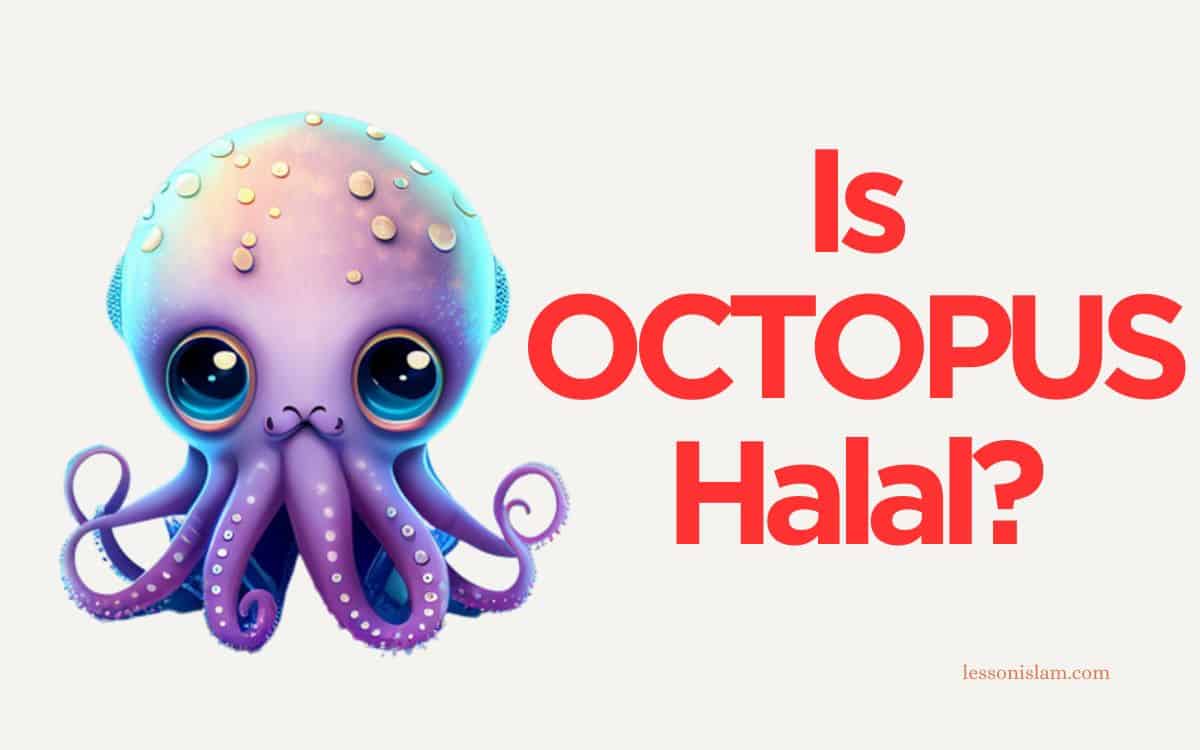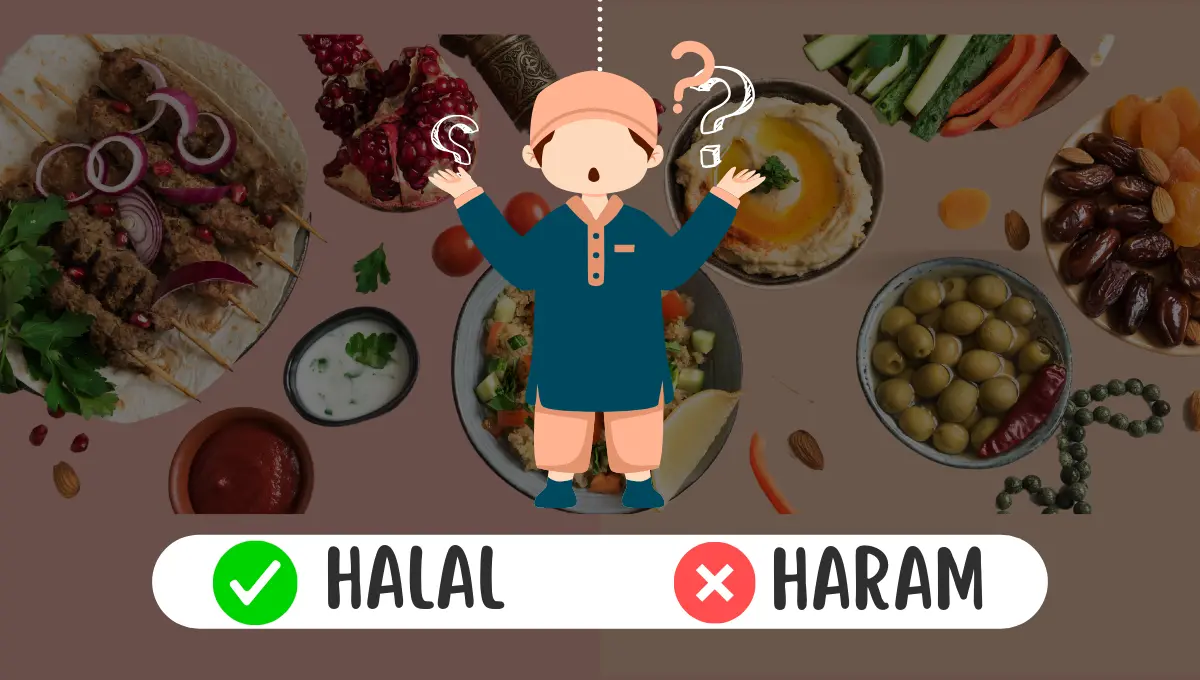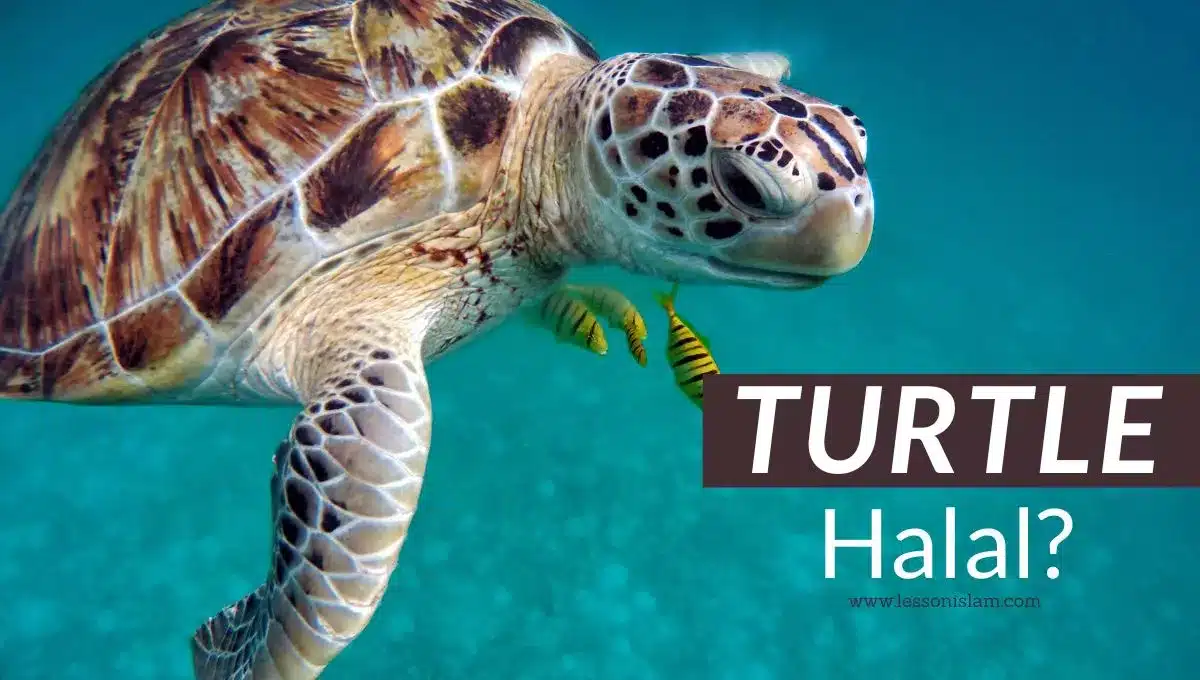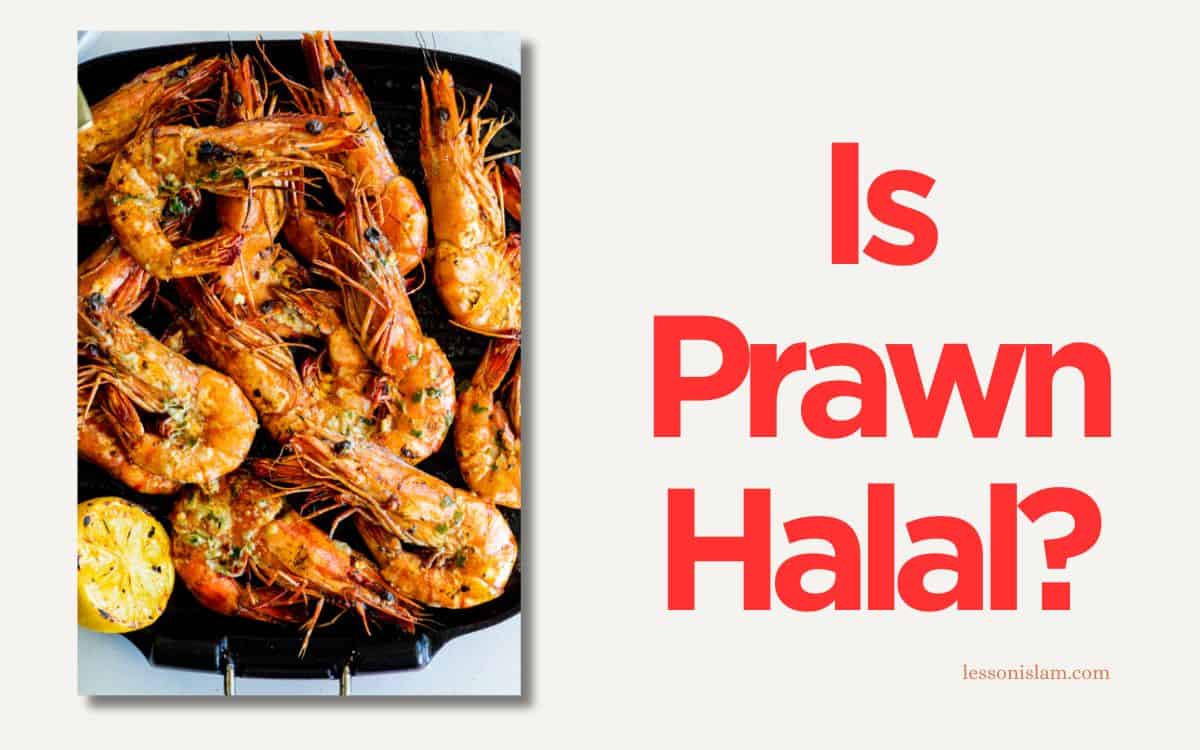Octopus Halal or Haram: Understanding haram and halal is an essential part of the Muslim faith; we consume lots of seafood without any doubt, but Muslims get stuck when it comes to some specific seafood.
Those kinds of seafood could also be crab, squid, and crocodile, which we covered in the previous article. Today, with this article’s help, we know what octopus halal or haram is for a Muslim.
As we all know, octopus is the most consumable seafood worldwide. These creatures are also known for their good nutrition sources of protein and omega-3 fatty acids, and people prepare them in many different ways.
Some Muslim people are concerned about eating this seafood. However, some people consider octopus good for health, which we can consume.
Muslims also get stuck as well when they think about eating the octopus. Thinking about halal and haram before eating anything is a sign of strong faith.
This article aims to provide the right information about octopus halal and haram and what Islamic scholars say about this debatable topic.
Before knowing, is octopus halal? We should understand the concepts of halal and haram in Islam.
May you have heard these haram and halal words? There are two terms used in Islam haram and halal. The meaning of haram is forbidden and unlawful; the halal meaning is permissible and lawful.
In Islam, halal and haram concepts are apparent. Our be loved. The prophet Muhammad PBUH told us Halal meaning is lawful and permissible in Islam, whereas haram refers to what is prohibited and sinful in Islam.
I hope you understand the concepts of halal and haram in Islam. But now the main thing is octopus halal or haram, let’s know this.
Islamic scholars have different opinions on the topic of octopus being halal and haram. Some scholars argue octopus is halal and a Muslim can eat it; however, some scholars do not allow the consumption of octopus and consider it Makruh.
Read this article completely to know the different opinions of the Islamic scholars and what evidence they took.
Defining Halal and Haram
These two words are haram and halal Arabic, where Muslims use these two words to do any permissible and prohibited actions. The meaning of halal is “Permissible” or lawful, whereas haram means not permitted and “Unlawful.”
There are some factors to being halal in the particular food that meets that criteria; then we can consider halal in Islam.
There are many halal foods, and certain animals are considered halal to eat. Those animals are chickens, goats, camels, fish, etc.
All animals are halal, but they should be slaughtered according to the Islamic way, and then we can eat them. Also, we need to recite the name of Allah before slaughtering the animal so it would be halal in sha Allah.
Alhamdulillah! Islam also taught us some of the halal slaughtering methods. While slaughtering any animal, we all need to follow these requirements.
- First, we should confirm the animal is alive and healthy at slaughter.
- Before slaughtering the animals, we must recite the name of Allah.
- While slaughtering the animals, always ensure the animal does not feel any pain. The animal must be stunned before cutting the throat.
- Always ensure the animal’s throat should be cut on a single attempt while slaughtering the animal.
- After slaughtering the animal, wait until the blood is drained.
Overview of Islamic Schools of Thought
There are misconceptions on the topic of octopus being halal. Islamic scholars have different opinions on this topic. Some scholars argue octopus is halal, and Muslims can eat these creatures.
On the other hand, some scholars argue octopus is not halal. It does not fulfill Islamic dairy laws, so it would be considered haram in Islam.
Those scholars argue about octopus being halal. They usually took the evidence of this holy Quran verse that Allah SWT says.
“Lawful to you is what you catch from the sea and (use) it for food as provisions for yourselves and travelers.”
(Quran 5:96)
According to some scholars (Shafi’i, Maliki, and Hanbali) who argue octopus is halal, they consider These verses of the holy Quran for all sea creatures. The Quran does not specifically mention octopus. So, it would be considered halal, and Muslims can consume it.
Whereas according to The Hanafi school of jurisprudence, octopus is not halal. They consider consuming the octopus to be makruh. Which means it is not prohibited but not recommended for consumption.
They also argue for being octopus halal. They say the Holy Quran does not allow and prohibit the consumption of fish without scales, and octopus also does not have scales. That is why they do not consider octopus halal for Muslims.
They also say octopus is very intelligent creatures of Allah SWT, and we should avoid them.
Octopus in Sunni Islam
Sunni scholars have different opinions on the topic of octopus being halal and haram. Some scholars argue octopus is halal and a Muslim can eat it; however, some scholars do not allow the consumption of octopus and consider it makruh.
(Shafi’i, Maliki, and Hanbali) who argue octopus is halal, they consider these holy Quran verses.
“Lawful to you is what you catch from the sea and (use) it for food as provisions for yourselves and travelers.”
(Quran 5:96)
Scholars say These verses of the holy Quran for all sea creatures. The Quran does not specifically mention octopus. So, it would be considered halal, and Muslims can consume it.
Whereas according to The Hanafi school of jurisprudence, octopus is not halal. They consider consuming the octopus to be makruh.
They say the Holy Quran does not allow and prohibit the consumption of fish without scales, and octopus also does not have scales. That is why they do not consider octopus halal for Muslims.
Octopus in Shia Islam
Scholars in the Muslim Shia tradition also have different opinions on the halal status of octopus. Ja’fari Shia school argues that octopus comes from the sea and lives in water so that Muslims can eat the octopus.
While other Shia scholars might consider harm and argue it does not fall into the fish category, it would be considered haram.
Why is octopus halal?
Saying octopus is halal for Muslims is not justified. Islamic scholars have different opinions on this. According to Shafi’i, Maliki, and Hanbali scholars, octopus is halal and allowed to consume.
The majority of Sunni tradition scholars consider octopus halal. They took the reference of this holy Quran verse.
“Lawful to you is what you catch from the sea and (use) it for food as provisions for yourselves and travelers.”
(Quran 5:96)
Whereas according to The Hanafi school of jurisprudence, octopus is not halal. They consider consuming the octopus to be makruh.
The Hanafi school of jurisprudence argues for it and says octopus does not have scales, whereas the Quran does not allow fish consumption without scales.
Conclusion
The status of an octopus being halal or haram depends on which jurisprudence you follow. According to (Shafi’i, Maliki, and Hanbali) we can eat the octopus, which is halal.
Whereas according to The Hanafi school of jurisprudence, octopus is not halal, and they consider it makruh.
Being a Muslim, if you have any doubt regarding any seafood, whether it is halal or haram, the best practice is to avoid that particular food because Allah SWT has made so many things that we can eat without any doubt.
Allah says in the holy Quran: “… Allah intends for you ease, and He does not want to make things difficult for you…” [al-Baqarah 2:185]
FAQs About Octopus Halal
Is octopus halal according to Hanafi school?
According to u003cstrongu003eThe Hanafi school of jurisprudenceu003c/strongu003e, octopus is not halal. They consider consuming the octopus to be u003cstrongu003emakruhu003c/strongu003e.
Why do Shias discourage eating octopus?
They base this on the fact that octopus does not have scales, and the Quran prohibits the consumption of fish without scales
Can Muslims eat alive octopus?
Some scholars argue octopus is halal and a Muslim can eat it; however, some scholars do not allow the consumption of octopus and consider it Makruh.
How is halal status determined for sea creatures?
The Holy Quran does not allow and prohibit the consumption of fish without scales, and it applies to all sea creatures.
What are basic criteria for halal seafood?
The Holy Quran does not allow and prohibit the consumption of fish without scales, and it applies to all sea creatures.
























Post Comment